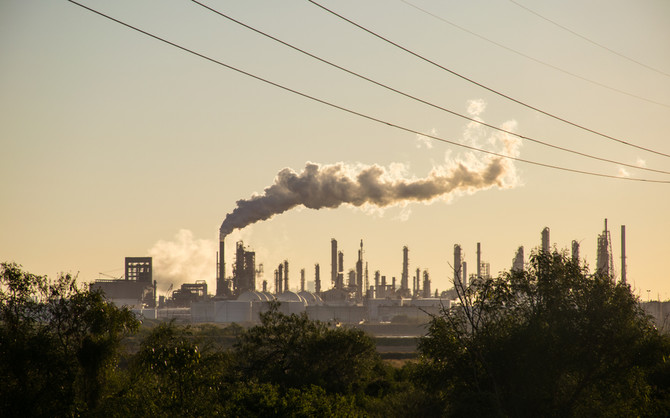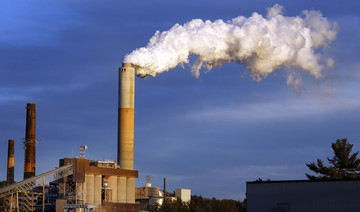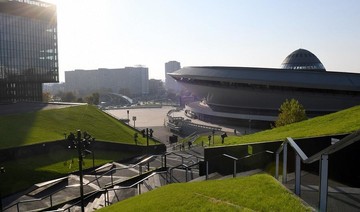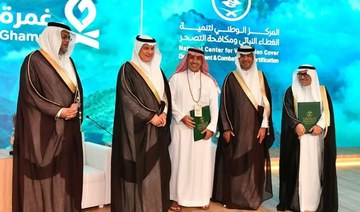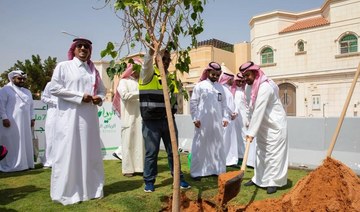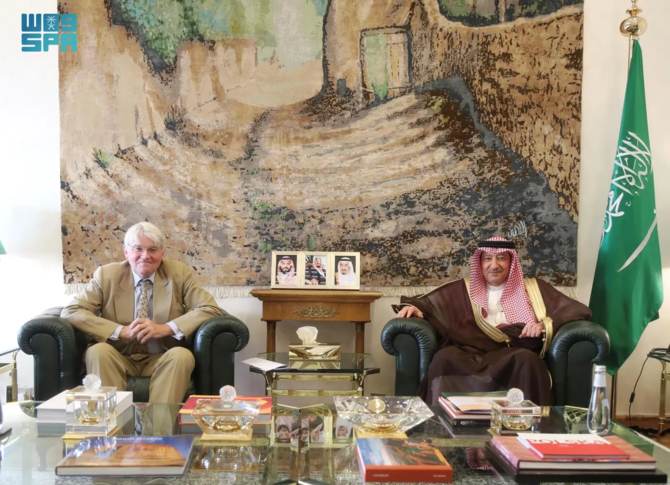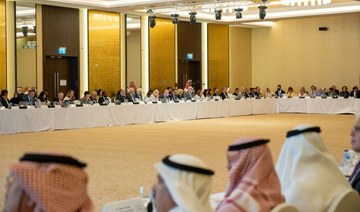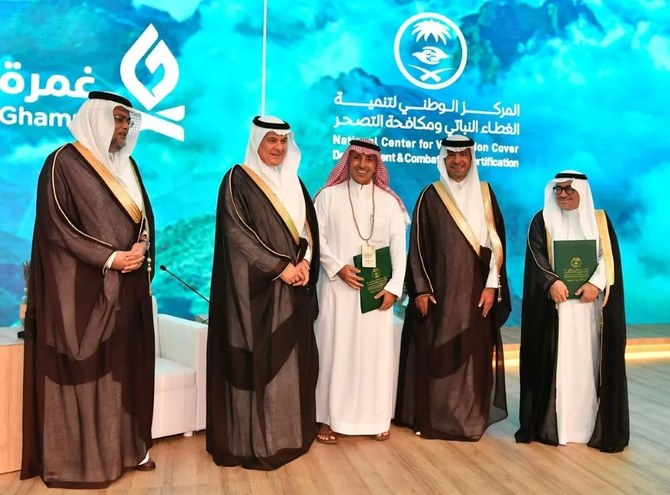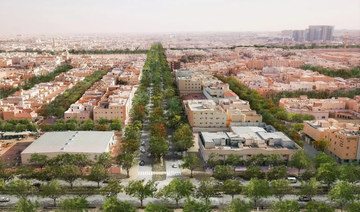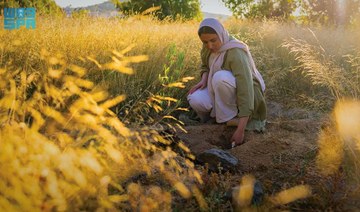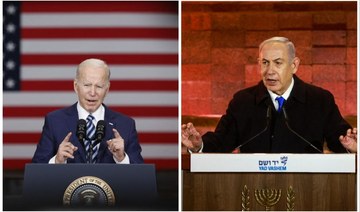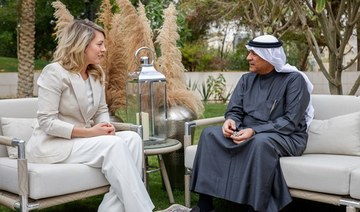DUBAI: Between December 3 and 14, about 30,000 people from around the world converged on the Polish coal city of Katowice for the United Nations Climate Change Conference. COP24 (Conference of the Parties to the UN Framework Convention on Climate Change) took place close on the heels of a special report by a UN panel predicting the increasingly severe effects of a 1.5C rise in global temperatures over pre-industrial levels.
COP24 was the third such meeting since the adoption in 2015 of the Paris Agreement, which outlined a joint roadmap for developed and developing countries to reduce greenhouse gas emissions starting from 2020. Naturally, the role of fossil fuels, greenhouse gas emissions and financial commitments in the battle against climate change were high on the Katowice agenda.
Governments have adopted a robust set of guidelines for implementing the 2015 Paris Agreement. The implementation of the agreement will benefit people from all walks of life, especially the most vulnerable.
The Katowice Climate Package is designed to put into operation the climate change regime contained in the Paris Agreement. Under the auspices of the United Nations Climate Change Secretariat, it will promote international cooperation and encourage greater ambition. The Katowice agreement aims to deliver the Paris goals of limiting global temperature rises to well below 2C.
Saudi Arabia was among the major participants from the Middle East, demonstrating the seriousness with which it is taking its own energy transition and international efforts to mitigate the effects of climate change. The ambitious targets the kingdom has set for itself are being seen as a message to other countries that also face a complicated transition.
“This year’s COP24 event was crucial in many ways, including its focus on people’s displacement because of extreme weather events and the impact on human lives,” said Dr. Taoufik Ksiksi, associate professor in biology at the United Arab Emirates University. “More people are now displaced as a result of climate-related extreme events than by wars and conflicts.”
Dr. Ksiksi says the need to limit the rise in global temperatures to 1.5C-2C adds pressure on all the Paris Agreement signatories to act faster. “All countries that signed on, including Saudi Arabia and the UAE, are working hard to (reduce) greenhouse gas emissions, among other things,” he told Arab News. “For countries like Saudi Arabia, it is critically important to get ahead of many other countries.”
Pointing to growing concern in the Middle East over the possible impact of climatic change and its excessive reliance on fossil fuels, Dr. Ksiksi said: “Some sectors, such as transportation, energy use efficiency and land use change, are more likely to be at the forefront of mitigation and adaptation schemes.”
The concept of COP came from the 1992 Rio Summit where the UN Framework Convention on Climate Change was adopted, and aims to inspire countries to make good on their climate pledges. As for COP24, this is “an important year for testing the Paris model of gradually scaling up the ambition of targets through its five-year review cycle,” Emma Champion, EMEA policy analyst at BloombergNEF, told Arab News.
Champion sees the financing of energy transitions as a major issue in the battle against climate change. “Developed countries are behind on their commitment to sending $100 billion a year to developing countries to help them to achieve their individual targets, while developing countries are already facing budgetary pressure amid extreme weather events,” she said.
At the Katowice gathering there was a semantic disagreement over whether it should “welcome” or “note” the UN panel’s warning of dire consequences if global temperatures rise by more than 1.5C, with four oil-producing countries — the US, Saudi Arabia, Russia, and Kuwait — expressing their preference for the term “note.”
By all accounts, Saudi Arabia is playing its part in the effort to achieve the Paris accord’s goals and targets. According to Raed Al-Schneiber, from the Saudi Energy Efficiency Center, despite being one of the world’s biggest energy producers the Kingdom is committed to becoming a highly energy-efficient country in order to preserve its resources for future generations. In this spirit, experts from Saudi Arabia gave presentations in Katowice highlighting home-grown innovations and advances.
Saudi Aramco’s Dr. Tidjani Niass said: “The Kingdom’s national petroleum and natural gas company is making commendable progress on a wide range of carbon-dioxide utilization technologies, among other fields. The company’s work in environmental stewardship has resulted in the world’s lowest-carbon crude.”
Organizations such as KSA Climate Change gave presentations on the sidelines of COP24 highlighting efforts to tackle water and wastewater challenges, sustainable development and creating value from carbon dioxide. The subjects were energy-efficiency applications in the Gulf, research and development for climate solutions, and the use of oil and gas technologies to address climate change challenges.
According to Dario Traum, a senior associate at BloombergNEF, as one of the countries whose economy will need to go through the most radical transformation as a result of climate-change mitigation efforts Saudi Arabia’s role in the negotiations is central. “Saudi Arabia is one of the countries that has an economy that is predominantly reliant on oil revenue,” he told Arab News.
“We have seen in recent years the kind of shocks to government revenue and savings a fall in oil prices can have. The Saudi government has started to respond to that with reform and through investment in new sectors at home and abroad, although this clearly needs to be scaled up in the coming years.”
One topic that was high on the COP24 agenda was clean energy technology, the applications of which are growing in a widening field of activities — power projects, transportation, waste management, energy efficiency and storage, and sustainable urban development, to name just five. If the trend continues, opportunities for unlocking investment in clean energy technologies will multiply, say experts.
“COP24 has further clarified the scale of the opportunity,” said Bader Al-Lamki, executive director for clean energy at Masdar, a UAE-headquartered company focused on the development, commercialization and deployment of renewable energy and sustainable urban development.
“The low-carbon economy is the new growth story of the 21st century. And through the initiative of countries such as the UAE and Saudi Arabia, which is wholeheartedly embracing the potential for renewables to meet its domestic power demand, it is a growth story in which emerging markets are actively participating.”
The overwhelming dependence of the Arab Gulf region on desalinated water means solar-based desalination technologies have a major role to play in helping countries meet their emissions-reduction targets.
In this context, Saudi Arabia’s King Abdullah University of Science and Technology (KAUST) has come up with a host of initiatives, one of them termed “green desalination.”
The need to meet the Paris Agreement targets is hardly the only worry for the Arab Gulf states, given the significant drop in rainfall received by the region in the last 20 years. “This drop will have an impact on natural vegetation, which is very much dependent on rainfall during specific seasons,” said Dr. Mohsen Sherif, director of the National Water Center in the UAE.
“It will also affect the phenomenon of natural groundwater recharge. If you have less rainfall, there will be less water filtering down to the aquifer system, which will reduce the amount of available groundwater. So there is a need to assess accurately the impact of climate change on the Arab Gulf region’s underground water resources.”


